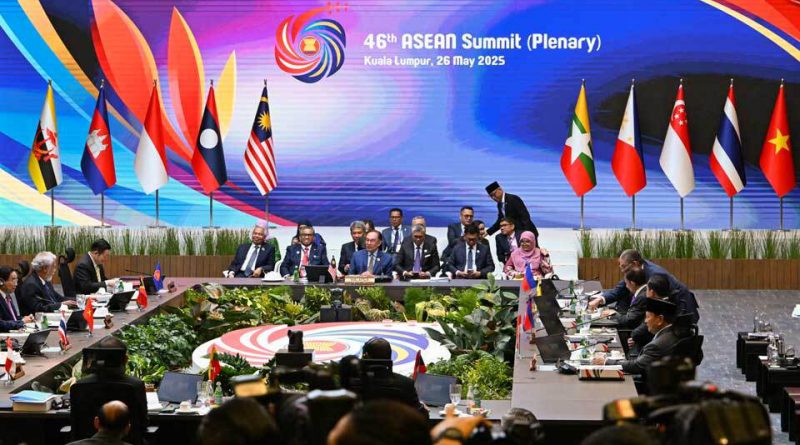U.S. Halts Trade Framework Talks With Thailand Amid Cambodia Ceasefire Dispute
Bangkok — Thailand announced on Saturday that the United States has paused discussions on finalising a new reciprocal trade framework, linking the delay to concerns over Thailand’s commitment to a ceasefire agreement with Cambodia.
The suspension comes as border tensions between the neighbouring Southeast Asian countries rise once again, prompting diplomatic pressure from Washington.
Thai officials said they received a formal letter from the Office of the U.S. Trade Representative on Friday night informing them that negotiations would not proceed until Bangkok reaffirmed its adherence to the U.S.-brokered truce.
Foreign Ministry spokesperson Nikorndej Balankura told reporters that the letter made clear the talks could restart once Thailand again confirmed its commitment to the joint ceasefire declaration.
Thailand recently argued that the ceasefire could not move forward due to what it described as violations by Cambodia, including accusations of newly laid landmines along the tense border.
Phnom Penh has rejected those claims, saying its forces have not breached any agreements and accusing Thailand of overreacting.
The halted negotiations affect a framework announced last month, in which the United States and Thailand outlined plans for reciprocal trade adjustments.
Under the proposed structure, the U.S. would maintain its existing 19% tariff on Thai goods while both sides identified products that could see tariffs reduced or eliminated in the future.
Officials from both countries were expected to negotiate implementation details before any agreement could be formally signed.
Now, that process remains on hold as tensions over the ceasefire overshadow economic cooperation between two long-standing partners.
Separately, U.S. President Donald Trump spoke with the leaders of both Thailand and Cambodia on Friday night following renewed clashes along the border.
He told reporters afterward that he believed the situation would stabilise, but he did not refer to the reported USTR letter or the paused trade discussions.
There was no mention of a suspension on the White House or USTR websites, where updates on other trade negotiations were posted.
This absence has raised questions about how publicly the U.S. administration plans to address the diplomatic link between the ceasefire and trade talks.
Thailand suspended its participation in the ceasefire earlier this week after claiming that fresh landmines had severely injured Thai soldiers near contested territory.
The Thai government demanded an apology and further assurances from Cambodia before proceeding, though Cambodian officials firmly deny involvement in any new incidents.
Spokesperson Nikorndej said Thai Prime Minister Anutin Charnvirakul explained the situation directly to President Trump during their phone call.
According to the spokesperson, Trump expressed understanding regarding Thailand’s concerns, though he also urged for rapid progress on border security issues.
Following the call, Anutin posted on Facebook that he had asked Trump to consider reducing the 19% tariff that remains a key issue in bilateral trade.
Anutin wrote that Trump viewed the tariff as already fairly low but said he would consider adjustments if Thailand completed landmine clearance along the border in an efficient manner.
The latest developments highlight how regional security issues are increasingly intersecting with economic negotiations in Southeast Asia.
With Washington’s insistence on linking trade progress to ceasefire adherence, Thailand now faces pressure to resolve its disputes with Cambodia if it hopes to move forward with the proposed trade framework.
Diplomats in Bangkok say the temporary suspension does not mark the end of talks but signals that political conditions must stabilise before negotiations regain momentum.
For now, both countries are watching whether Thailand and Cambodia can de-escalate tensions quickly enough to restore confidence and reopen the path toward expanded trade cooperation.



